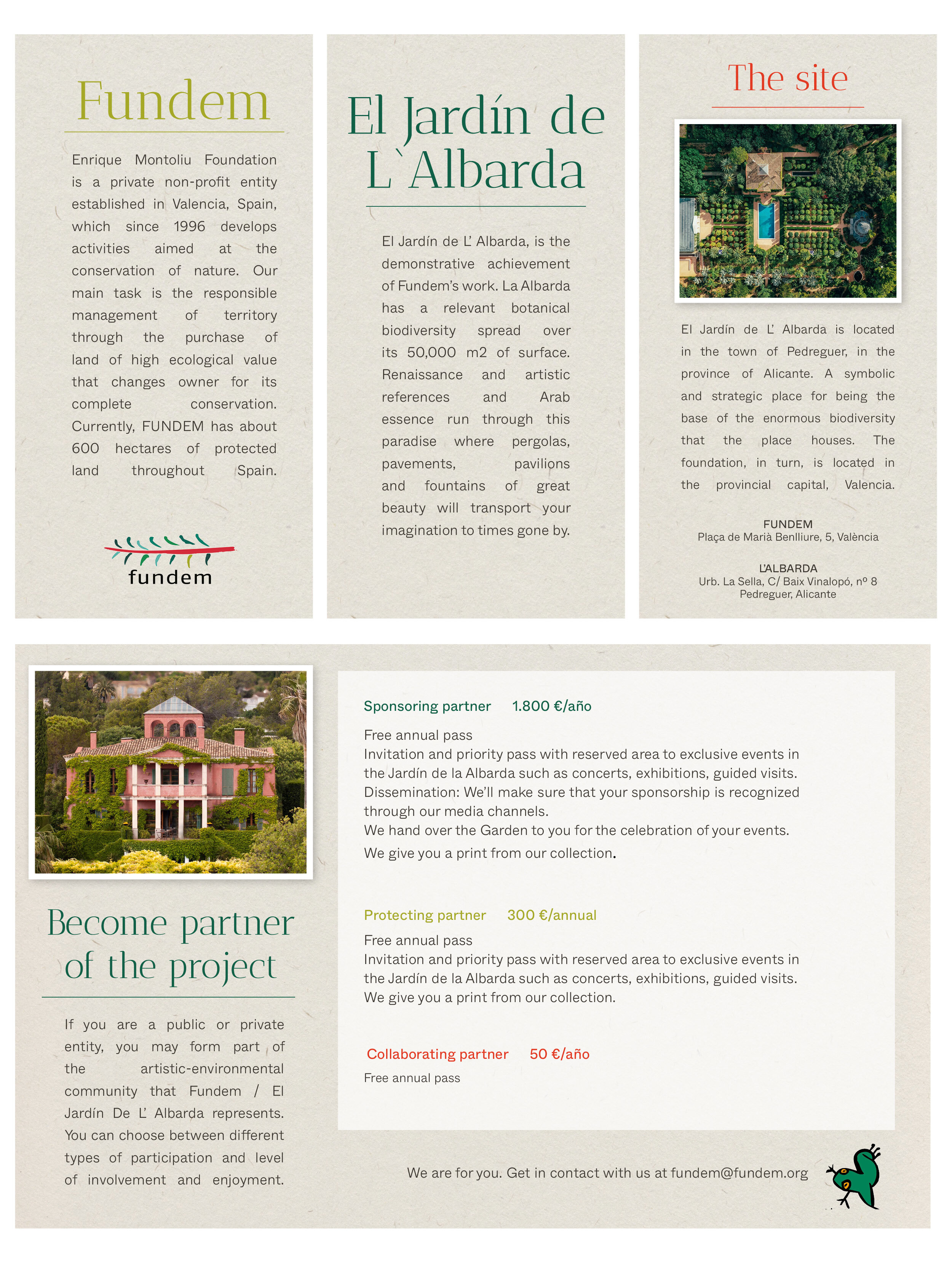“We should start thinking about what we can all do for nature"
Enrique Montoliu is a Valencian engineer who, 30 years ago, began to create what is today El Jardín de l’Albarda: a natural space of great biodiversity, which can be visited every day of the year. His garden won the Magister prize for landscape gardening in 2002 and is a reference model in the world of Mediterranean gardening. In this interview, Enrique talks about its origins, the mission of his non-profit foundation, FUNDEM, and the future of the garden.
How did the idea of creating the Jardín de l'Albarda come about?
"It all started in 1990: I wanted to build a house with a garden near Valencia or by the sea, in Denia, but I couldn't find anything. Everything was already built. That's why I started looking in this area, near Jávea, where I had always spent my summer holidays. I bought a rocky plot, next to the Montgó Natural Park, and met a botanist who got me interested in endemic plants and landscaping. Now, three decades later, EL Jardín de L'Albarda has more than 5 hectares and is still growing. Nature always surprises us".
How would you define El Jardín de l’Albarda?
"It is a Mediterranean garden, in Renaissance style, which also includes a Valencian Arabic garden, in which I have tried to recreate paradise, with more than 700 species of native plants and 15 ponds and fountains. And you can't keep paradise for yourself: you have to share it. That's why I decided to open it to the public and now you can discover it through our guided tours or on your own. We also organise concerts in the garden or gardening courses. At first it was free, until some friends told me that this was a problem, because it was not valued. It's the same with nature. Watching the sunrise or sunset is the most wonderful thing anyone can see, because we are not able to reproduce it. Everything is beautiful, nothing is flashy or tasteless, but when man intervenes, things change. Nature is the height of art and wisdom. It is also where human beings are at their best and most free".
What is FUNDEM, the private non-profit foundation you preside over?
"In 1996 I decided to create a foundation, FUNDEM, for the conservation and recovery of Mediterranean fauna and flora. Our mission is to raise awareness and involve society in the conservation of natural heritage. Thanks to membership fees, we are buying up land all over Spain, which is of high ecological interest, and handing it over to local environmental groups. The first one was in the Más del Peraire Biological Reserve, in Fredes (Castellón), but then we have continued with a eucalyptus estate in Ulloa (Lugo), a forest land in Múgica (Vizcaya), another in the Sierra del Espadán or in La Marjal de Almenara (Castellón) and some in the province of Alicante, where our Jardín de l’Albarda is also located, such as the Vall de la Gallinera, Benimantell or the Vall de Laguar. We need more partners, to be able to continue acquiring land and protecting it: our reference is the National Trust, from Great Britain, which has 6 million. We are still a long way off, we have to keep working.
What are the challenges facing El Jardín de l’Albarda in the coming years?
"What worries me most is that the garden will be maintained when I am no longer here. We need young people to get involved, because they are the main stakeholders. We are fighting against climate change, which is our biggest problem right now, because we have taken over everything and disrupted the planet. Just because we have been the most voracious species doesn't mean we are the most intelligent. We are gambling with our future. We live uncounciously and we need to be more in touch with the earth. We need to consider what each of us can do for nature. That's why I want more people to get to know the Albarda Garden, because anyone who falls in love with this garden will not let it be destroyed".
How can we do our bit?
"El Jardín de l’Albarda is maintained thanks to my personal heritage and right now, my priority is the continuity of the garden, for its botanical and aesthetic function for future generations. That's why I want people to be aware of it, to come and visit us, so it is essential that we all work together to recommend our garden to family and friends and to spread the word about the project. To collaborate with our mission, it is also possible to become a volunteer of the Garden of L'Albarda, or a member-collaborator, paying an annual that goes entirely to the acquisition and maintenance of land for its environmental preservation. Another way of collaboration is through the cession, sale or donation of land".


